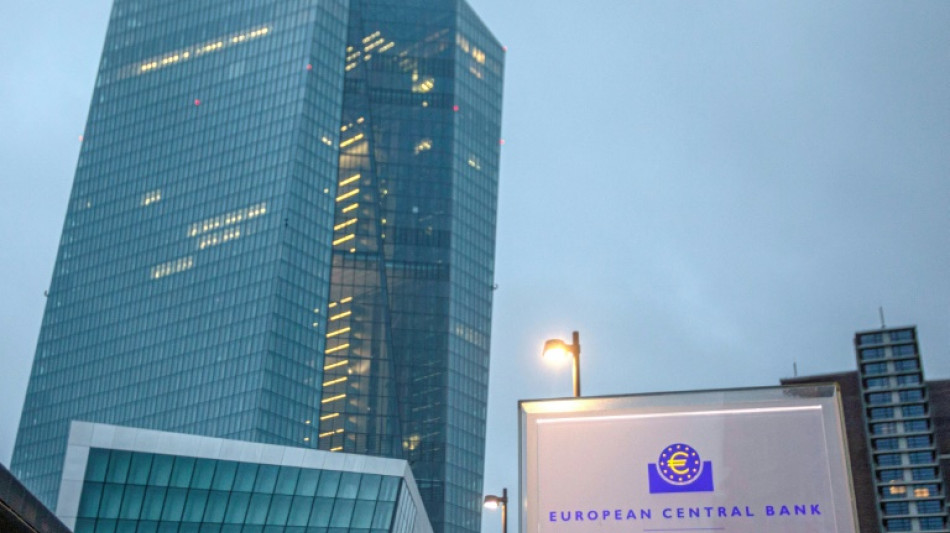
-
 Microsoft raises Xbox prices globally, following Sony
Microsoft raises Xbox prices globally, following Sony
-
US stocks rise on Meta, Microsoft ahead of key labor data
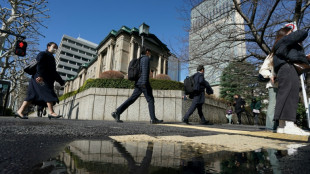
-
 Toulouse injuries mount as Ramos doubtful for Champions Cup semi
Toulouse injuries mount as Ramos doubtful for Champions Cup semi
-
Guardiola glad of Rodri return but uncertain if he'll play in FA Cup final
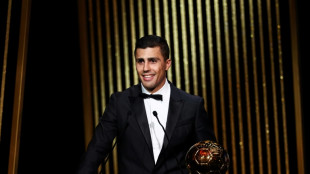
-
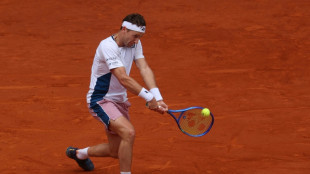 Ruud sails past Medvedev into Madrid Open semis
Ruud sails past Medvedev into Madrid Open semis
-
'Not a commodity': UN staff rally over deep cuts
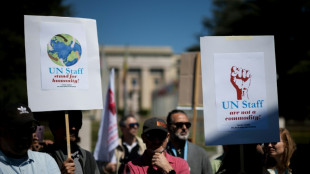
-
 Flintoff proud as Afghan refugee protege plays for Lancashire second team
Flintoff proud as Afghan refugee protege plays for Lancashire second team
-
Peruvian cardinal accused of abuse challenges late pope's sanction
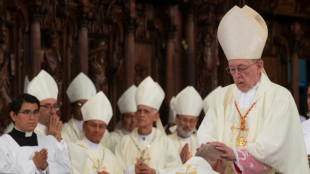
-
 Trans women barred from women's football by English, Scottish FAs
Trans women barred from women's football by English, Scottish FAs
-
Oil prices drop, stocks diverge amid economic growth fears
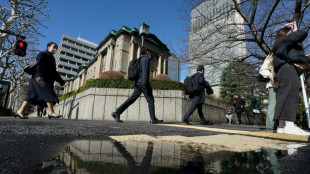
-
 Israel brings fire near Jerusalem 'under control', reopens roads
Israel brings fire near Jerusalem 'under control', reopens roads
-
Lopetegui appointed coach of Qatar
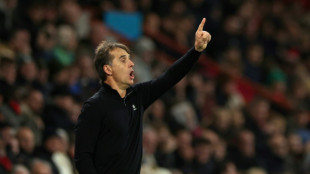
-
 UK counter-terrorism unit probes rappers Kneecap but music stars back band
UK counter-terrorism unit probes rappers Kneecap but music stars back band
-
Yamal heroics preserve Barca Champions League final dream
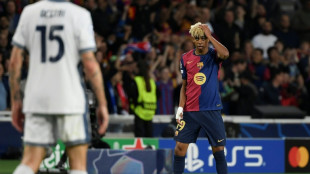
-
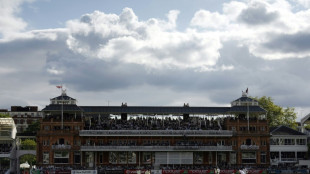 2026 T20 World Cup 'biggest women's cricket event in England' - ECB
2026 T20 World Cup 'biggest women's cricket event in England' - ECB
-
Bangladesh begins three days of mass political rallies

-
 Children learn emergency drills as Kashmir tensions rise
Children learn emergency drills as Kashmir tensions rise
-
Millions of children to suffer from Trump aid cuts
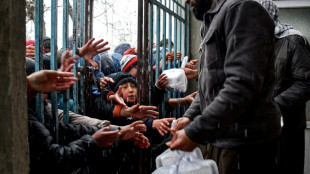
-
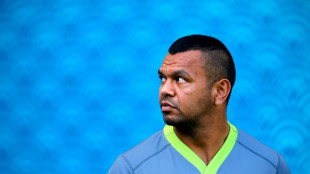 Veteran Wallaby Beale set for long-awaited injury return
Veteran Wallaby Beale set for long-awaited injury return
-
Syria's Druze take up arms to defend their town against Islamists

-
 Tesla sales plunge further in France, down 59% in April
Tesla sales plunge further in France, down 59% in April
-
US calls on India and Pakistan to 'de-escalate'

-
 Israel reopens key roads as firefighters battle blaze
Israel reopens key roads as firefighters battle blaze
-
Europe far-right surge masks divisions

-
 James will mull NBA future after Lakers playoff exit
James will mull NBA future after Lakers playoff exit
-
Ukraine's chief rabbi sings plea to Trump to side with Kyiv

-
 Australian mushroom meal victim 'hunched' in pain, court hears
Australian mushroom meal victim 'hunched' in pain, court hears
-
Lakers dumped out of playoffs by Wolves, Rockets rout Warriors

-
 Booming tourism and climate change threaten Albania's coast
Booming tourism and climate change threaten Albania's coast
-
US reaching out to China for tariff talks: Beijing state media

-
 Tariffs prompt Bank of Japan to lower growth forecasts
Tariffs prompt Bank of Japan to lower growth forecasts
-
Kiss faces little time to set Wallabies on path to home World Cup glory

-
 Serbian students, unions join forces for anti-corruption protest
Serbian students, unions join forces for anti-corruption protest
-
Slow and easily beaten -- Messi's Miami project risks global embarrassment

-
 Fan in hospital after falling to field at Pirates game
Fan in hospital after falling to field at Pirates game
-
Nuclear power sparks Australian election battle

-
 Tokyo stocks rise as BoJ holds rates steady
Tokyo stocks rise as BoJ holds rates steady
-
Bank of Japan holds rates, lowers growth forecasts

-
 'Sleeping giants' Bordeaux-Begles awaken before Champions Cup semis
'Sleeping giants' Bordeaux-Begles awaken before Champions Cup semis
-
Napoli eye Scudetto as Inter hope for post-Barca bounce-back

-
 Germany's 'absolutely insane' second tier rivalling Europe's best
Germany's 'absolutely insane' second tier rivalling Europe's best
-
PSG minds on Arsenal return as French clubs scrap for Champions League places

-
 UK WWII veteran remembers joy of war's end, 80 years on
UK WWII veteran remembers joy of war's end, 80 years on
-
Myanmar junta lets post-quake truce expire

-
 Rockets romp past Warriors to extend NBA playoff series
Rockets romp past Warriors to extend NBA playoff series
-
Messi, Inter Miami CONCACAF Cup dream over as Vancouver advance

-
 UN body warns over Trump's deep-sea mining order
UN body warns over Trump's deep-sea mining order
-
UK local elections test big two parties

-
 US judge says Apple defied order in App Store case
US judge says Apple defied order in App Store case
-
Seventeen years later, Brood XIV cicadas emerge in US


ECB sits tight as inflation pressure rises
The European Central Bank stuck to its ultra-loose monetary policy on Thursday, despite record inflation in the eurozone putting the Frankfurt-based institution under mounting pressure.
The inflation rate unexpectedly rose to 5.1 percent in the euro area in January, official data showed Wednesday.
The figure is an all-time high since records for the currency club began in 1997, 0.1 points higher than the figure for December and well above the ECB's two-percent target.
The steep rise in prices seen globally has induced other central banks to act, with the Bank of England announcing it would raise its main rate by a quarter point to 0.5 percent at a meeting on Thursday.
The US Federal Reserve is widely expected to follow suit soon after signalling multiple rate hikes this year.
But ECB policymakers left its rates at record lows, including a negative deposit rate that charges financial institutions to park their cash with the central bank overnight.
While the decision to stand pat was expected, the pressure on the ECB to tighten policy would grow "in the course of the year", said Fritzi Koehler-Geib, chief economist at the German public lender KfW.
Observers will be scouring ECB chief Christine Lagarde's planned remarks later Thursday for any indication of a change in thinking within the central bank.
The former French finance minister has increasingly acknowledged the risk that inflation could be higher than the ECB expects but has so far said any rate hikes this year were "very unlikely".
- Gas peak -
The ECB must tread a fine line between the "falling necessity to continue stimulating the economy and actually bringing higher inflation down", said Carsten Brzeski, head of macro at the ING bank.
The eurozone economy reached its pre-coronavirus pandemic level in the fourth quarter of 2021, but tightening too quickly could threaten to derail the recovery.
The surge in inflation in Europe has been driven by a range of factors, but mostly on the supply side rather than the demand side, where the ECB has fewer levers to effect change.
Widespread shortages of raw materials and key components -- everything from wood to semiconductors -- have weighed on production and added to the upward pressure on prices.
In addition, energy prices have spiked, hitting multi-year highs towards the end of last year.
In Europe, the market has become captive to rising tensions between Moscow and the West over the massing of Russian troops on the border with Ukraine.
Any escalation in the conflict could cause prices to shoot up further.
- Second round -
While tightening monetary policy could do little to bring gas prices down or avoid a conflict in Ukraine, the ECB would be keeping a close eye on "second-round effects", ECB executive board member Isabel Schnabel told the German daily Sueddeutsche Zeitung in January.
Higher energy prices could mean goods and services "become more expensive and wages would start rising", she said.
On the other side of the Atlantic, wage increases have been more visible, contributing to driving US inflation to as high as seven percent in December.
That and the comparatively lower importance of energy prices have encouraged the Federal Reserve to take tough action.
The ECB's more cautious response is predicated on its forecasts that see inflation dropping below the central bank's two-percent goal in 2023 and 2024 and a promise to end stimulus bond purchases before hiking rates.
At its last meeting in December, the ECB announced a "step-by-step" reduction in its pandemic emergency bond-buying programme.
It will not update its growth and inflation projections until its next meeting in March.
F.Bennett--AMWN